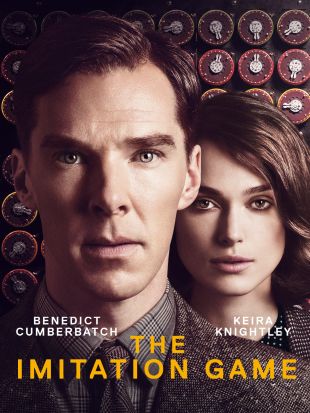
If you watch Morten Tyldum's The Imitation Game without any knowledge of who pioneering computer scientist Alan Turing was, the odds are good that you'll never forget his name when it's over. A deft mix of spy-film tension and a sensitive portrait of the mind of a social misfit, the movie is a thoroughly engaging experience -- thanks in large part to first-time feature scribe Graham Moore's ingeniously tight script and a charismatic lead performance by Benedict Cumberbatch.
The film juggles three different timelines in Turing's life. In the earliest, he's a teenager at boarding school, where he's cruelly bullied by classmates and finds solace in his close relationship with his only friend. In the furthest timeline, he raises the suspicion of police detectives after his home is burgled and he has no interest in pressing charges. A determined inspector starts digging, thinking that Turing is hiding something and is possibly a spy. However, most of the movie is spent in the middle timeline, in which Turing works on building a machine that will crack the German Enigma code, arguably doing more to help the Allied Forces win WWII than any other single individual.

The Imitation Game covers a great deal of material, but never bogs down thanks to the superb script. Moore's dialogue and structure allow Tyldum to touch on military history, the birth of computer science, and the legal persecution that homosexuals faced in mid-20th century Britain without the movie ever feeling self-important or preachy. At heart, it's an old-fashioned spy thriller, and it works perfectly in that manner while also presenting a three-dimensional profile of the complicated man at its center.
Cumberbatch fills the role perfectly. He's basically playing a more repressed version of his Sherlock Holmes, the TV part that made him a star; the scenes in which Turing's social cluelessness and smug superiority alienate his fellow code-breakers feel like they could have been lifted from that series. But Turing is a far more complex figure than the famed fictional detective. He hides so much from so many people, and suffered so greatly as a boy for his otherness, that he stammers when he's flustered. Turing is forced to quash his sexual urges, and if you pay attention to when Cumberbatch makes his stammer more pronounced, you'll appreciate how a first-rate actor can seize on a particular tic to reveal someone's inner life. It's a wonderful piece of technical acting that Cumberbatch makes completely natural -- and makes the film worthy of repeated viewings.

The entire cast are spot-on. Keira Knightley plays a fellow code-breaker who faces constant prejudice because she's a woman, and that social stigma allows her character and Turing to form a deep bond (and even become engaged). Matthew Goode warms up the film as Hugh Alexander, who becomes the closest thing to a male friend Turing has during his years in intelligence work; Hugh's charm stands in stark contrast to Alan's prickliness. Mark Strong plays the code-breaking group's MI6 contact, and his typical menace is used to great effect: You have no problem believing that he knows more horrible truths than anyone else onscreen.
Accusing The Imitation Game of being "Oscar bait" misses the point. Yes, it's obviously a film designed to get good reviews and to serve up the kind of history and moral lessons that usually click with Academy voters, but it never does this at the expense of being a terrific thriller. Even if you are familiar with Turing and the breaking of Enigma, the movie still enthralls due to the rich performances, snappy dialogue, and economical script. It's a genuinely entertaining film that doesn't announce its significance, but instead allows viewers to learn for themselves how important Turing was to modern society.
